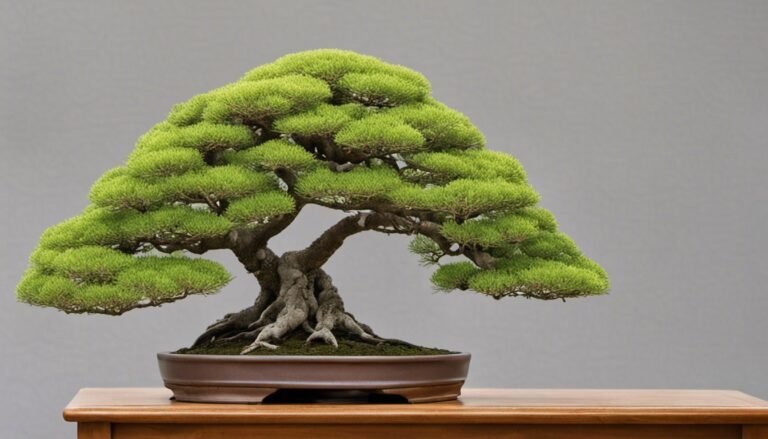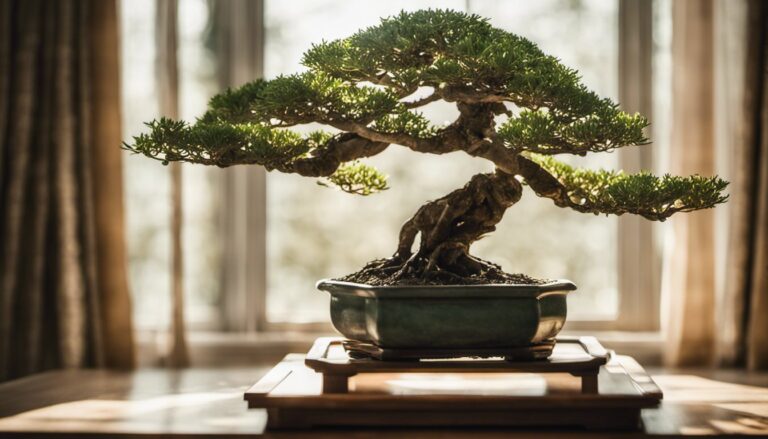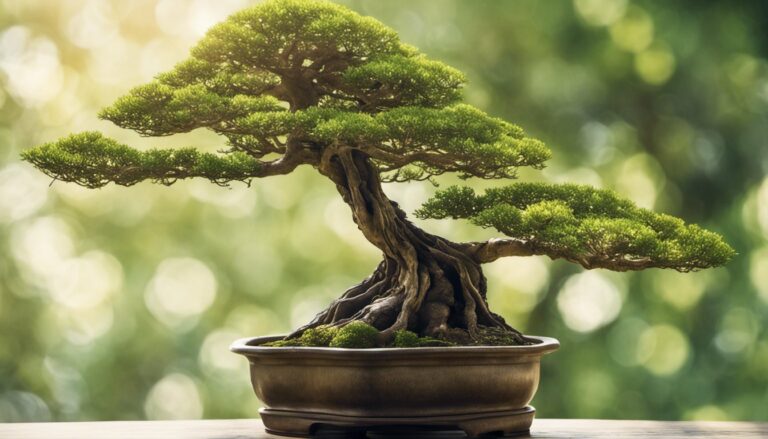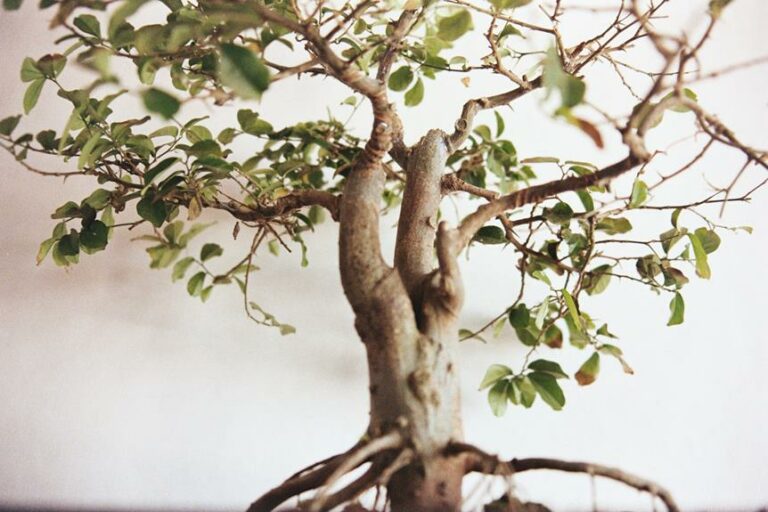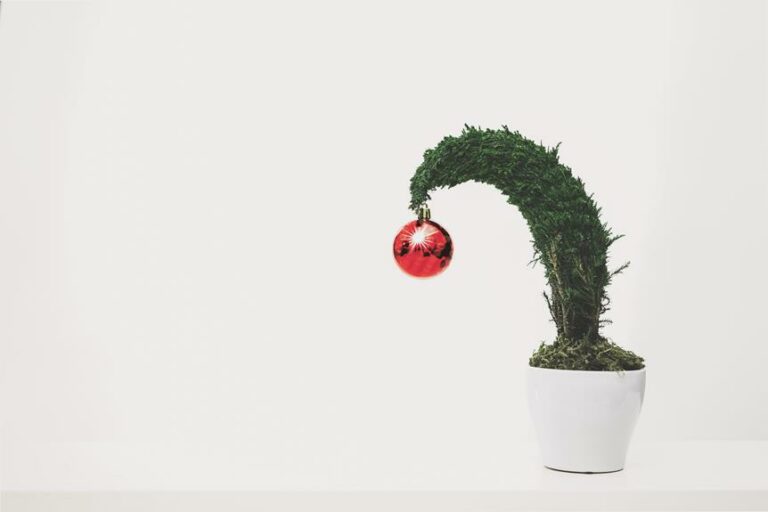City Rats Devour Bonsai Trees – Plant Lovers Beware
Do you know that city rats have a voracious appetite for bonsai trees? These larger and more aggressive rodents can cause significant damage to your beloved plants. Unlike their rural counterparts who prefer meat, city rats see bonsai trees with flowers or fruit as a free meal. They specifically target these delicate trees, especially during the winter months when other food sources are scarce.
If not prevented, city rats can completely devour a bonsai tree, leaving you devastated. In this article, we will explore the effects of rat infestations on bonsai trees, the types of rats that cause the most damage, the reasons behind their destructive behavior, and effective methods to prevent and control rat infestations.
If you value your bonsai trees, it's crucial to learn how to protect them from the destructive appetite of city rats.
Key Takeaways
- Rat infestations can cause significant damage to bonsai trees, with rats eating the bark, leaves, and fruit.
- City rats cause the most damage to bonsai trees, as they are larger, more aggressive, and more likely to eat a bonsai tree in its entirety.
- Bonsai trees with flowers or fruit are particularly attractive to rats, who see them as a free meal.
- To prevent rats from eating bonsai trees, various methods can be used, such as laying down sticky traps, keeping bonsai trees in high areas, using dry ice, and building metal cold frames for winter storage.
Rat Damage to Bonsai Trees
If you love your bonsai trees, you must be aware of the significant damage that rat infestations can cause. Rats are known to eat the bark, leaves, and fruit of bonsai trees, causing more damage compared to other rodents. They tend to target bonsai trees during the winter when food sources are scarce. If left unchecked, rats can completely consume a bonsai tree.
City rats are the main culprits when it comes to damaging bonsai trees. They're larger, more aggressive, and more likely to eat a bonsai tree in its entirety. On the other hand, rural rats are less inclined to eat bonsai trees as they prefer meat. City rats are particularly attracted to bonsai trees with flowers or fruit.
To prevent rats from eating your bonsai trees, you can lay down sticky traps, keep the trees in high areas, or consider keeping them indoors. Using predators like cats or owls can also help control rat infestations. However, be cautious, as predators may become sick from eating the trees. If all else fails, calling an exterminator to use rat poison may be necessary.
Types of Rats That Target Bonsai Trees
City rats are the primary type of rats that target bonsai trees.
Here are the types of rats that damage bonsai trees:
- City rats cause the most damage to bonsai trees. They're larger and more aggressive compared to rural rats.
- City rats are more likely to eat a bonsai tree in its entirety, while rural rats prefer meat and are less inclined to eat bonsai trees.
- City rats are attracted to bonsai trees with flowers or fruit, seeing them as a free meal.
- Reasons why rats eat bonsai trees include their scavenging nature, preference for meat, and scarcity of regular food sources during winter months.
Knowing the types of rats that target bonsai trees can help bonsai enthusiasts take appropriate measures to protect their beloved plants.
Reasons Behind Rat's Appetite for Bonsai Trees
Rats are attracted to bonsai trees due to their preference for flowers or fruit. The presence of these enticing elements serves as a free meal for the rats, making the bonsai trees an easy target. City rats, in particular, are more likely to eat bonsai trees because of their preference for meat. They see the trees as a source of food during the winter months when their regular food sources are scarce. To gain a better understanding of the reasons behind rat's appetite for bonsai trees, refer to the table below:
| Reasons Why Rats Eat Bonsai Trees |
|---|
| Rats are scavengers and will eat anything they come across, including bonsai trees. |
| Bonsai trees with flowers or fruit are seen as a free meal by rats. |
| Rats eat bonsai trees during the winter months when their regular food sources are scarce. |
Knowing these reasons can help bonsai tree owners take appropriate measures to protect their beloved plants from rat infestations.
Preventive Measures Against Rat Infestations
To protect your bonsai trees from rat infestations, there are several preventive measures you can take:
- Lay down sticky traps around the pots of your bonsai trees. These traps will catch rats and prevent them from damaging your trees.
- Keep your bonsai trees in high areas that are difficult for rats to reach. By elevating your trees, you can deter rats from accessing them.
- Consider keeping your bonsai trees indoors to avoid rat infestations altogether. Indoor environments are less attractive to rats and can provide a safer space for your trees.
- Use dry ice near your bonsai trees to exterminate nearby rats. Dry ice releases carbon dioxide, which can suffocate rats and eliminate them from your garden.
Using Sticky Traps to Catch Rats
One effective method to catch rats and prevent them from devouring your bonsai trees is by using sticky traps. Sticky traps are adhesive boards that are designed to trap and immobilize rats once they step onto them. These traps are highly effective because rats get stuck on the adhesive surface and are unable to escape.
When using sticky traps, it's important to place them strategically near the bonsai tree pots or in areas where rats are commonly seen. It's also advisable to check the traps regularly and dispose of any trapped rats properly. Sticky traps are a humane option as they don't involve the use of harmful chemicals or poisons.
Bonsai Tree Placement to Deter Rats
To prevent rats from devouring your bonsai trees, strategic placement is key. Consider the following tips to deter rats from feasting on your beloved plants:
- Elevate the bonsai tree: Place your bonsai tree on a raised platform or shelf to make it difficult for rats to reach. Rats are agile climbers, but by elevating the tree, you can create a barrier that discourages their access.
- Keep it away from walls and fences: Rats are known for their ability to squeeze through tight spaces. Keep your bonsai tree at least a foot away from walls and fences to prevent rats from using them as a launching pad to reach the tree.
- Use deterrents: Surround your bonsai tree with materials that rats dislike, such as gravel, mulch, or rough surfaces. These textures can make it uncomfortable for rats to approach the tree.
- Avoid attractive features: Bonsai trees with flowers or fruit are more likely to attract rats. If possible, choose bonsai varieties that are less likely to produce flowers or fruit to reduce the appeal for rats.
Indoor Protection for Bonsai Trees
Protect your bonsai trees from rat infestations by bringing them indoors. Indoor protection is an effective way to safeguard your bonsai trees from the damaging effects of rats. Rats are known to eat the bark, leaves, and fruit of bonsai trees, causing significant damage that can surpass that caused by other rodents.
By keeping your bonsai trees indoors, you create a barrier that prevents rats from accessing them. This is especially important during the winter months when rats are more likely to target bonsai trees due to scarcity of other food sources.
Additionally, indoor placement also protects your bonsai trees from other potential threats such as extreme weather conditions or diseases, ensuring their overall well-being and longevity.
Exterminate Rats With Dry Ice
To effectively exterminate rats and combat infestations, consider using dry ice as a method of control. Here are four reasons why dry ice can be an effective solution:
- Carbon dioxide suffocation: Dry ice releases carbon dioxide gas as it sublimates, which displaces the oxygen in the surrounding area. Rats are unable to breathe and eventually suffocate.
- Non-toxic and safe: Dry ice is a non-toxic substance that doesn't pose a risk to humans or pets. It can be used in indoor and outdoor settings without causing harm.
- Easy to use: Simply place dry ice near rat burrows, entry points, or areas where they're active. As the dry ice sublimates, the carbon dioxide will disperse, effectively exterminating the rats.
- Cost-effective: Dry ice is readily available and relatively inexpensive compared to other methods of rat extermination.
Building a Rat-Proof Winter Storage
When building a rat-proof winter storage for your bonsai trees, ensure that you use materials that rats can't easily chew through. Rats are notorious for their ability to gnaw through various materials, including wood and plastic.
To protect your bonsai trees, consider using metal or wire mesh for the walls and flooring of the storage. These materials are much more difficult for rats to chew through, ensuring that your trees remain safe.
Additionally, make sure that the storage is tightly sealed to prevent rats from entering. Use sturdy locks or secure latches to keep the storage secure.
Controlling Rat Infestations With Predators and Exterminators
If you're dealing with a rat infestation that's causing damage to your bonsai trees, you can take action by enlisting the help of predators and exterminators. Here are some methods to consider:
- Cats: Cats are natural predators of rats and can help control infestations. Their presence alone may deter rats from approaching your bonsai trees.
- Owls and other birds: These birds also act as natural predators of rats. Encouraging their presence in your garden can help keep rat populations under control.
- Use caution with predators: While predators can be effective, be mindful that they may become sick from eating bonsai trees. Ensure the safety and well-being of both the predators and your bonsai trees.
- Exterminators: If other methods fail, consider seeking the assistance of professional exterminators who can use rat poison to effectively stop and control rat infestations.
Conclusion
In conclusion, it's crucial for plant lovers who cherish their bonsai trees to be aware of the destructive nature of city rats. These larger and more aggressive rodents have a particular appetite for bonsai trees and can cause significant damage if left unchecked.
By taking preventive measures such as using sticky traps, providing indoor protection, exterminating rats with dry ice, and building rat-proof winter storage, bonsai tree owners can effectively control rat infestations and protect their beloved trees.
Stay vigilant and protect your bonsai trees from the voracious appetite of city rats.


